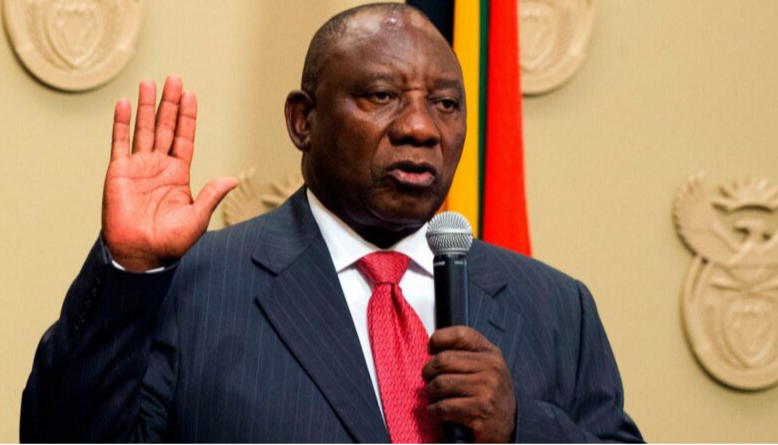
South African President Cyril Ramaphosa
By Roberto Morejón
A skilled negotiator, the leader of the ANC, African National Congress, Cyril Ramaphosa, has been inaugurated for a second presidential term in South Africa, 30 years after the beginning of efforts to leave behind the heavy legacy of development separated by races, the hated apartheid.
In these plans to reduce inequality, unemployment and insufficient basic services, the ANC, until now with the absolute majority in Congress, has had great weight, but the difficulties have been accentuated in a country of 62 million inhabitants.
The historic African National Congress, which contributed so much to the independence of countries such as Namibia and Angola, lost its absolute majority in the legislative elections on May 29.
But quickly, the ANC leader and President Ramaphosa spoke with other political forces and ultimately managed to integrate a national unity government in South Africa, described by observers and the president as significant and the beginning of a new era.
As the ANC won 150 seats out of the 400 that make up parliament, Ramaphosa will now lead a government in which power is shared with some representatives of the opposition, something unprecedented.
Among those included in the new political range, the conservative Democratic Alliance stands out, a formation with 87 deputies that accepted the call to reach a confluence. So did three other parties.
In this way, Parliament re-elected Ramaphosa as Head of State, who in his words is permeated by the interest of many compatriots to work together to face the current difficult circumstances.
Uniting the people of South Africa has been one of the lines enunciated by the re-elected dignitary, committed to building a growing and inclusive economy, with opportunities and livelihoods for all people.
For Ramaphosa, everything possible must be done not to lose what has been built over the last three decades and move towards the creation of more jobs and greater opening of basic services.
Ten years after the death of the famous Nelson Mandela, the ANC remains the main party in a country with the most industrialized economy in Africa, but with needs to be met, hence the re-elected President's insistence on achieving national unity.

